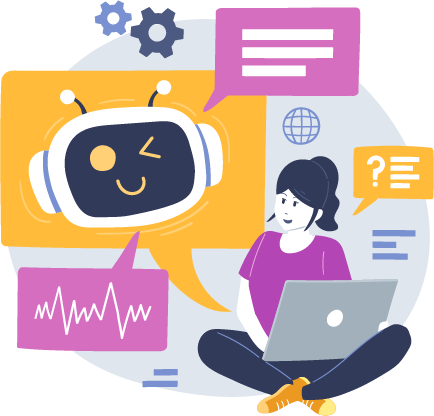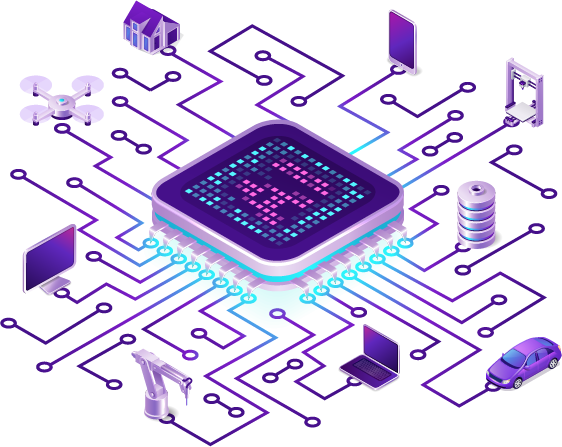Revolutionizing the Digital Landscape
In the ever-evolving landscape of mobile app development, Artificial Intelligence (AI) has emerged as a transformative force, reshaping the way applications function and interact with users. As smartphones have become an integral part of our daily lives, AI integration has opened new avenues for innovation, offering personalized, intelligent, and context-aware experiences. This introduction delves into the realm of AI mobile app development, exploring the fundamental concepts, applications, and the impact it has on the future of mobile technology.


Understanding AI in Mobile App Development
Artificial Intelligence, broadly defined as the simulation of human intelligence in machines, encompasses various technologies, including machine learning, natural language processing, and computer vision. In the context of mobile app development, AI introduces a level of sophistication that enables apps to learn from user behavior, make predictions, and adapt to evolving preferences. This dynamic interaction between users and applications marks a paradigm shift, enhancing the overall user experience.
Key Components of AI Mobile App Development
- Machine Learning (ML):ML algorithms lie at the heart of AI mobile app development. These algorithms empower apps to analyze data, recognize patterns, and make informed decisions without explicit programming. From personalized content recommendations to predictive text and user behavior analysis, ML enables apps to evolve and improve over time.
- Natural Language Processing (NLP): NLP facilitates communication between humans and computers using natural language. In mobile apps, this translates to voice recognition, language translation, and chatbots. NLP-driven applications understand user queries, respond contextually, and execute commands, creating a more intuitive and conversational user experience.
- Computer Vision: Computer vision in AI mobile app development allows devices to interpret and make decisions based on visual data. This includes facial recognition, object detection, and augmented reality applications. By integrating computer vision, apps can offer enhanced features like image recognition, real-time translation of text in images, and immersive AR experiences.


Applications of AI in Mobile Apps
- Personalization and Recommendation Engines: AI algorithms analyze user preferences, behaviors, and historical data to provide personalized content recommendations. This is evident in music streaming apps suggesting playlists, video platforms recommending content, and e-commerce apps offering tailored product suggestions.
- Virtual Assistants and Chatbots: Virtual assistants like Siri, Google Assistant, and chatbots powered by AI have become ubiquitous in mobile apps. They offer users a conversational interface for tasks such as setting reminders, answering queries, and even making reservations, streamlining user interactions.
- Predictive Analytics: AI enables mobile apps to anticipate user needs through predictive analytics. For instance, predictive text input, commonly used in messaging apps, suggests words or phrases based on the context of the conversation, enhancing typing speed and accuracy.
- Image and Speech Recognition: AI-driven image and speech recognition technologies have significantly improved in recent years. Mobile apps leverage these capabilities for tasks like facial recognition in photo apps, language translation using the device’s camera, and voice-controlled functionalities.
- Health and Wellness Apps: AI plays a crucial role in health and wellness apps, offering features such as personalized fitness plans, health monitoring, and symptom analysis. AI algorithms can analyze user data to provide insights into sleep patterns, dietary habits, and exercise routines.
Impact on User Experience
The integration of AI in mobile app development has a profound impact on user experience, fostering a more intuitive, efficient, and engaging interaction. Personalization, driven by AI algorithms, tailors content and features based on individual preferences, enhancing user satisfaction. Moreover, the ability of AI to continuously learn and adapt ensures that apps evolve alongside user behavior, providing a dynamic and responsive experience.


Challenges and Considerations
While the benefits of AI in mobile app development are evident, several challenges and considerations accompany its implementation. Data privacy concerns arise as AI relies on vast amounts of user data for training and optimization. Striking a balance between personalization and respecting user privacy becomes paramount. Additionally, ensuring transparency in AI algorithms, avoiding biases, and maintaining ethical standards are critical considerations for developers and businesses.
The Future of AI in Mobile App Development
As technology continues to advance, the future of AI in mobile app development holds exciting possibilities. The convergence of AI with other emerging technologies, such as 5G connectivity, edge computing, and the Internet of Things (IoT), will amplify the capabilities of mobile apps. We can anticipate more immersive augmented reality experiences, seamless integration of voice commands, and AI-driven automation of complex tasks.
Moreover, AI’s role in enhancing cybersecurity within mobile apps is likely to expand. AI algorithms can detect and respond to security threats in real-time, providing an additional layer of protection for user data. This proactive approach to security aligns with the growing emphasis on safeguarding user information in an interconnected digital ecosystem.
The integration of AI in mobile app development represents a significant leap forward in the capabilities and functionalities of mobile applications. From personalized experiences to predictive analytics, AI enhances every facet of the user journey. As developers continue to explore innovative applications and address challenges, the symbiotic relationship between AI and mobile technology is poised to shape the future of digital experiences. Embracing this evolution, both users and developers stand to benefit from a more intelligent, adaptive, and user-centric mobile app landscape.











